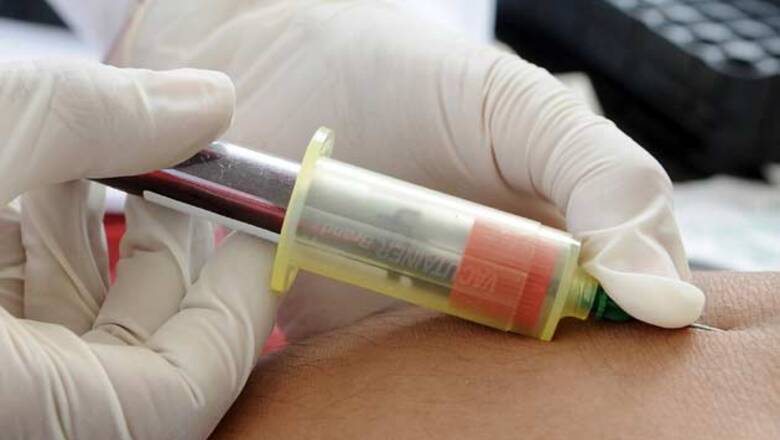
views
New Delhi: The Delhi High Court on Wednesday sought the city government's reply to a PIL seeking an order to adopt blood-screening methods like Individual Donor Testing (IDT) through Nucleic acid Amplification Test (NAT) to avoid the possibility of infections being spread through blood transfusion. A bench of Chief Justice D Murugesan and Jayant Nath issued a notice to the city government's department of Health and Family Welfare and sought the response by July 10, 2013, the next date of hearing.
The court was hearing a PIL filed by a practicing lawyer Jewesh Maneja through advocate R Jawaharlal saying the government should use NAT screening of donated blood in blood banks in the city by the process of IDT. The plea said implementation of NAT will be an important step forward in the prevention of transmission of infections through transfusion and also increase the availability of a safer blood supply.
"There is a need to ensure safety of blood donated for transfusion in Blood Banks in Delhi and to eliminate the inherent risks of transmission of infections through infected blood, without adequate testing of donated blood," the petition said. "In case, the donor has infections like Hepatitis B Virus (HBV) or Hepatitis C Virus (HCV) or Human Immuno deficiency Virus (HIV), for which no vaccine exists, such infection would be passed on to the recipient as well, endangering his life and others also.
"Therefore, unless screening methods like IDT through Nucleic acid Amplification Test (NAT) are deployed, the possibility of infections being spread through blood transfusion remains an imminent and life threatening threat," as per the PIL. The screening is predominantly done by ELISA method and there is every possibility that the viruses, bacteria go undetected by this method and infected blood is transfused in a recipient, thereby infecting him with deadly viruses, bacteria, etc, the petition said.
The petitioner claimed a large number of countries in the world had gradually shifted to NAT in order to make the transfusion of blood safer. "NAT IDT is a breakthrough technology/ method, whereby the blood screening for infection is performed with Nucleic Acid (RNA & DNA) found in blood plasma and has close to zero error," the PIL submitted.
The petitioner further said several central government hospitals including AIIMS, RML, Bowring and Lady Curzon Hospital, Bangalore, Kolkata Medical College & Hospital, Christian Medical College (CMC), Vellore, Post Graduate Institute for Medical Education and Research, Chandigarh, Armed Forces Transfusion Centre, Delhi Cantonment are using NAT IDT.
















Comments
0 comment